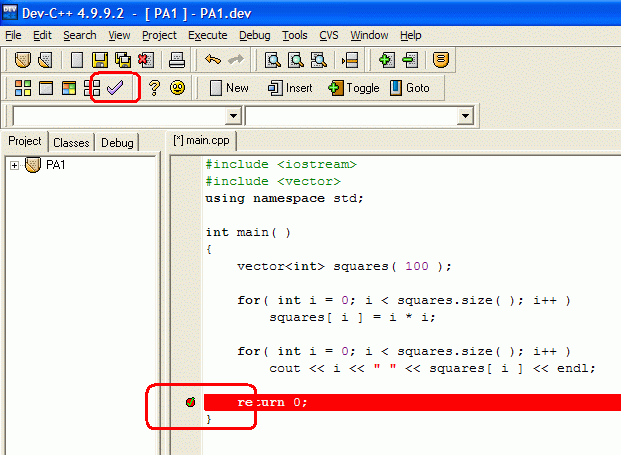- The C Standard Library
- C Standard Library Resources
- C Programming Resources
- Selected Reading
I am a professional mid-level C/Qt developer focused on creating robust code, even in high complexity applications. I sum up to 5 years experience in programming, which the last three and half (3,5) years, are in professional C/Qt development. The rest was experimenting over 2 years with C# and.Net, creating personal and University projects. For every non-zero element arri, put the element at ‘arrcount’ and increment ‘count’. After complete traversal, all non-zero elements have already been shifted to front end and ‘count’ is set as index of first 0. Now all we need to do is that run a loop which makes all elements zero from ‘count’ till end of the array. C: If and Else Statements. So we've learnt how to collect basic data from the user, but wouldn't it be useful if we could do different things depending on what the user typed in? Well this happens to be a very core concept of computer programming, and we can do exactly as previously described with these things called 'if' statements. C while and do.while Loop Loops are used in programming to repeat a specific block of code. In this article, you will learn to create while and do.while loops in C programming. In C, you can exit a program in these ways: Call the exit function. Call the abort function. Execute a return statement from main. Exit function. The exit function, declared in, terminates a C program. The value supplied as an argument to exit is returned to the operating system as the program's return code or exit code. By convention, a return code of zero means that the program completed.
Description
The C library function void exit(int status) terminates the calling process immediately. Any open file descriptors belonging to the process are closed and any children of the process are inherited by process 1, init, and the process parent is sent a SIGCHLD signal.

Declaration
Following is the declaration for exit() function.
Parameters
status − This is the status value returned to the parent process.
Return Value
This function does not return any value.
Example
The following example shows the usage of exit() function.
Let us compile and run the above program that will produce the following result −
Dev C++ Program Download
In C++, you can exit a program in these ways:
- Call the exit function.
- Call the abort function.
- Execute a return statement from
main.
exit function
The exit function, declared in <stdlib.h>, terminates a C++ program. The value supplied as an argument to exit is returned to the operating system as the program's return code or exit code. By convention, a return code of zero means that the program completed successfully. You can use the constants EXIT_FAILURE and EXIT_SUCCESS, also defined in <stdlib.h>, to indicate success or failure of your program.
Issuing a return statement from the main function is equivalent to calling the exit function with the return value as its argument.
abort function
The abort function, also declared in the standard include file <stdlib.h>, terminates a C++ program. The difference between exit and abort is that exit allows the C++ run-time termination processing to take place (global object destructors will be called), whereas abort terminates the program immediately. The abort function bypasses the normal destruction process for initialized global static objects. It also bypasses any special processing that was specified using the atexit function.
atexit function

Use the atexit function to specify actions that execute prior to program termination. No global static objects initialized prior to the call to atexit are destroyed prior to execution of the exit-processing function.
return statement in main
Issuing a return statement from main is functionally equivalent to calling the exit function. Consider the following example:
The exit and return statements in the preceding example are functionally identical. However, C++ requires that functions that have return types other than void return a value. The return statement allows you to return a value from main.
End Program In C
Destruction of static objects
When you call exit or execute a return statement from main, static objects are destroyed in the reverse order of their initialization (after the call to atexit if one exists). The following example shows how such initialization and cleanup works.
Example
How To End A Program In Dev C Pdf
In the following example, the static objects sd1 and sd2 are created and initialized before entry to main. After this program terminates using the return statement, first sd2 is destroyed and then sd1. The destructor for the ShowData class closes the files associated with these static objects.
Another way to write this code is to declare the ShowData objects with block scope, allowing them to be destroyed when they go out of scope:
Boot camp no mac os disk. In Windows on your Mac, click in the right side of the taskbar, click the Boot Camp icon, then choose Boot Camp Control Panel. If a User Account Control dialog appears, click Yes. Select the startup disk that has the default operating system you want to use. If you want to start up using the default operating system now, click Restart.